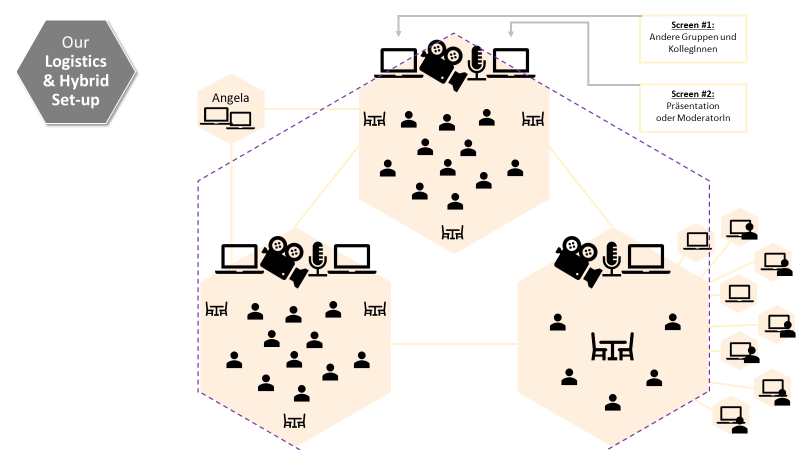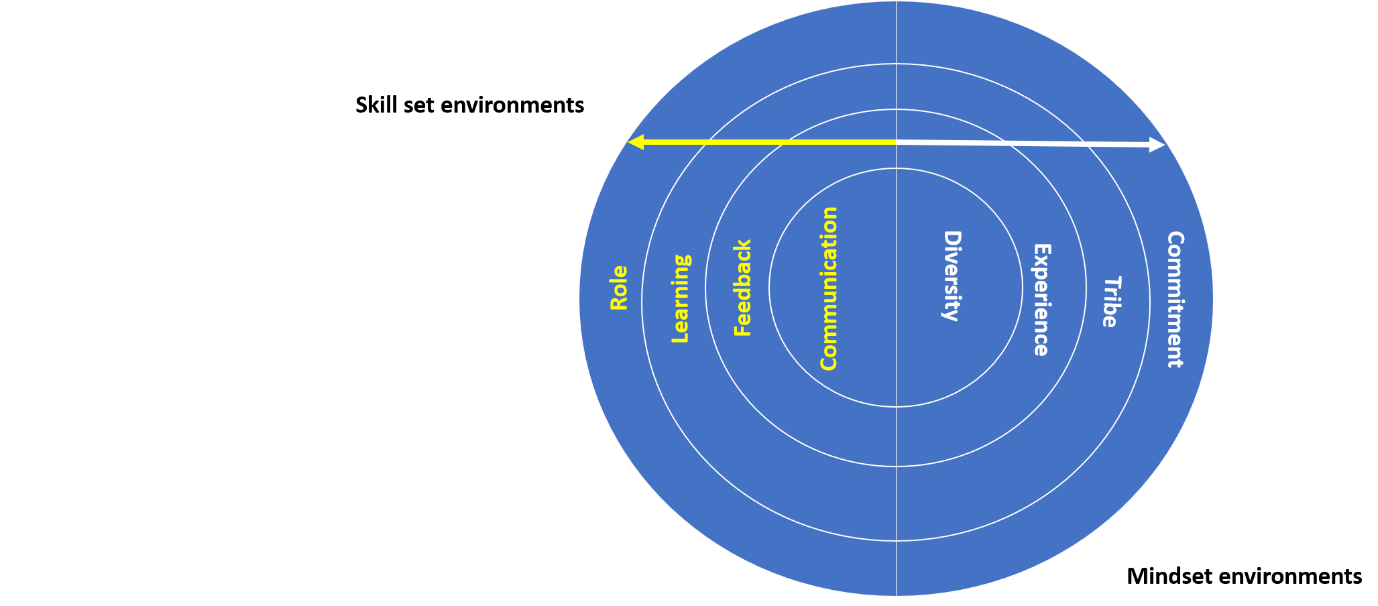
5 tips to increase trust when working hybrid
5 tips to increase trust when working hybrid
Team cohesion and stability are more important now than ever before. Especially in a hybrid setup, where some new challenges await you and the dynamics of your team are constantly changing, you need to be able to trust each other. Here are 5 tips to increase trust when working hybrid.
Build an informal exchange
Even in a hybrid environment, it’s important to exchange ideas with each other without constantly focusing on work. However, you don’t have to take a coffee break together every day for this – it’s enough to turn on your camera in meetings and engage in conversations. When any kind of communication is cultivated, you can cooperate more easily and effectively as a team.
Attract employees to the office
Especially in times like these, you want to keep the number of office days as short as possible – who wants to commute across town when you can join a meeting from the comfort of your bed? That’s exactly why it’s significant for you as a leader to give your team a reason to take the trip. This could be in the form of a “lunch fix,” for example, where you meet at the office on a specific day of the week to eat lunch together. This way, employees are immediately more interested in doing their work from the office.
Strengthen community in business meetings
In parallel to informal meetings, it is of course just as relevant to strengthen cohesion in business meetings. The most important thing here is not to discuss individual topics with separate employees while others are present. If you’re already sitting down together, you should only discuss areas that affect everyone. In addition, it is legitimate to ask your employees personally what their ideas are and how they think cooperation can best be strengthened.
Encourage development and innovation
People often learn best in a community – this can be a good motivating factor. If you set a goal as a team to further your education and expand your general knowledge, one way to do this would be to learn something new every office day. For example, every week someone else could bring an article or blog post on a current topic and then discuss it in the group with the colleagues. That way, you’ll always be up to date on the most important issues for the company.
Improve structure and organization
To ensure that everyone knows their way around and that working in a hybrid setup runs as smoothly as possible, it is important to create clear structures and stick to them. If all employees adhere to certain rules, they can plan and arrange their lives much better. This way, you can significantly reduce chaos and confusion in the company.
Want to learn more?
In our guide Successful hybrid leadership – The 3 success factors of hybrid leadership you will get some more tools and tips to increase trust when working hybrid …
… or join our LinkedIn Leadership Community:
























